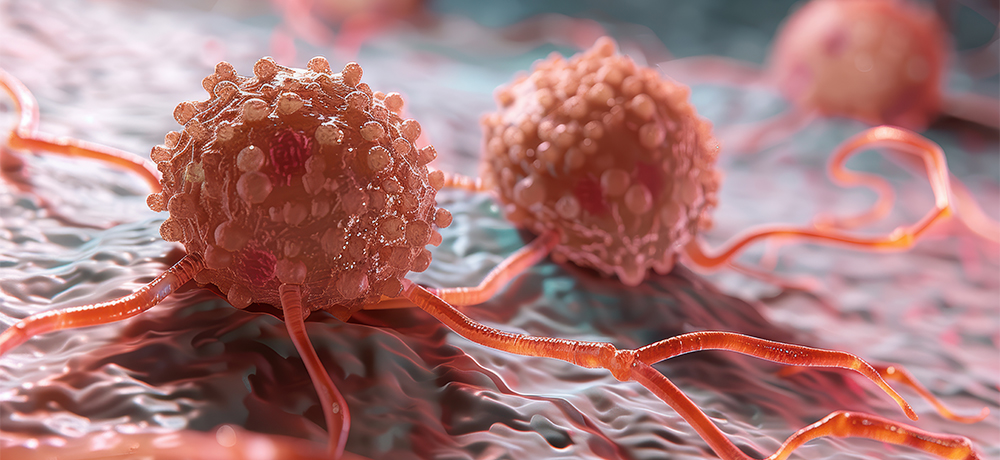Cancer Is Not a Death Sentence: Early Detection, Targeted Therapy, and Prevention Are Key
04 November 2025

For many, cancer is still synonymous with death. However, with modern medicine now, cancer today is not as terrifying as we once believed. With early detection and timely treatment, many cancers can, in fact, be cured.
The Rising Trend of Cancer Among the Young and Its Causes
Cancer can affect people of all ages — children and adolescents included. In recent years, colorectal, breast, and pancreatic cancers have shown a sharp rise among younger populations. This trend is closely linked to modern lifestyle factors, environmental influences, and genetic predispositions.
At the same time, childhood cancers such as leukaemia and brain tumours remain the leading causes of death in children. Unlike adult cancers, paediatric cancers are often driven by inherited factors or mutations during early development.
Understanding Tumour Types: Benign vs Malignant
Not all tumours are malignant. Cancer occurs when certain cells in the body lose their normal regulation and begin to divide and grow abnormally, forming masses, or tumours, that can invade surrounding tissues.
Benign tumours typically grow slowly and do not spread, whereas malignant tumors are invasive and can metastasise through the lymphatic or blood system to other organs.
The State of Cancer in Malaysia
According to the Malaysian National Cancer Registry Report (2017 – 2021), breast cancer ranks as the most common cancer in Malaysia, followed by colorectal and lung cancers.
Compared to 2012 – 2016, cancer incidence has risen significantly, with women being more affected than men — underscoring the urgent need for prevention and early detection.
Modern Cancer Treatment: Transforming Outcomes from Despair to Hope
With advances in medicine and technology, survival and cure rates for many cancers have greatly improved. For instance, early-stage breast, prostate, and thyroid cancers now have five-year survival rates exceeding 90%. This shows that with precise treatment, proper management, and a positive attitude, patients can lead fulfilling lives post-recovery.
As long as cancer is detected, diagnosed, and treated early, it is possible for cancer to be cured or controlled.
Cancer prognosis depends on its type, stage, treatment plan, and overall health of the patient. The era of one-size-fits-all treatment is over. With the emergence of targeted therapy, immunotherapy, and minimally invasive surgery, cancer treatment has become more personalised, effective, and less toxic.
Cancer Prevention: The Power Is in Our Hands
Nearly 90% of cancers are caused by acquired factors, meaning they are preventable and controllable. Only about 10% arise from inherited genetic mutations.
Having a family history of cancer does not mean one is destined to develop it. Genetic predispositions, such as mutations in BRCA1 or BRCA2, only increase risk under certain conditions. In reality, hereditary cancers account for just 5 – 10% of all cases. The vast majority are sporadic, caused by random gene mutations accumulated over a lifetime.
The World Health Organisation states that over one-third of cancers are preventable. We can significantly lower cancer risk by adopting a proactive and health-conscious lifestyle, which includes:
- Avoiding carcinogens like tobacco and alcohol
- Maintaining a healthy diet
- Exercising regularly
- Getting vaccinated (HPV, Hepatitis B)
- Undergoing regular cancer screening
We must stop viewing cancer as an unavoidable fate. While we cannot change our genes, we can take charge of our lifestyle. The best treatment is preventing cancer from occurring in the first place. Prevention is always better than cure, and every healthy choice you make is an investment in your future self.
Through science, prevention, early detection, and targeted therapy, we can transform cancer from a terminal illness into a manageable and even curable condition. Let us replace fear with knowledge and face the future with courage and hope.
If you’d like to learn more about cancer care and available treatments, click here to arrange a consultation with Dr Vance Koi Yung Chean, Consultant Clinical Oncologist, for personalised guidance.






